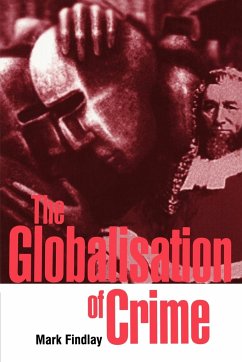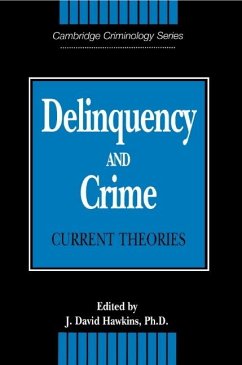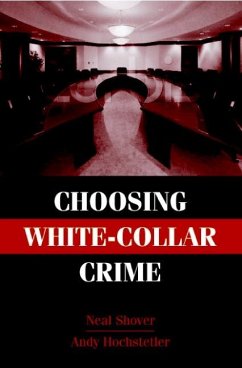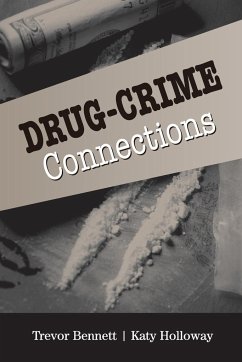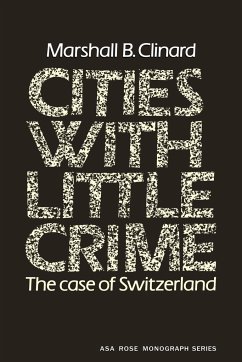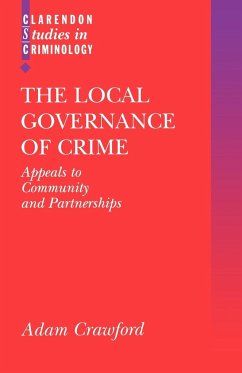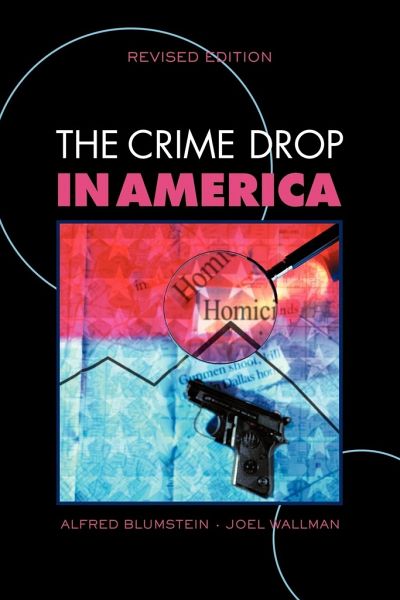
The Crime Drop in America
Versandkostenfrei!
Versandfertig in 1-2 Wochen
49,99 €
inkl. MwSt.
Weitere Ausgaben:

PAYBACK Punkte
25 °P sammeln!
Short description/annotationTop criminologists explain the reasons for the drop in violent crime in America.Main descriptionViolent crime in America shot up sharply in the mid-1980s and continued to climb until 1991, after which something unprecedented occurred. The crime level declined to a level not seen since the 1960s. This revised edition of The Crime Drop in America focuses first on the dramatic drop in crime rates in America in the 1990s, and then, in a new epilogue, on the patterns since 2000. The separate chapters written by distinguished experts cover the many factors affecting crime...
Short description/annotation
Top criminologists explain the reasons for the drop in violent crime in America.
Main description
Violent crime in America shot up sharply in the mid-1980s and continued to climb until 1991, after which something unprecedented occurred. The crime level declined to a level not seen since the 1960s. This revised edition of The Crime Drop in America focuses first on the dramatic drop in crime rates in America in the 1990s, and then, in a new epilogue, on the patterns since 2000. The separate chapters written by distinguished experts cover the many factors affecting crime rates: policing, incarceration, drug markets, gun control, economics, and demographics. Detailed analyses emphasize the mutual effects of changes in crack markets, a major focus of youth violence, and the drop in rates of violence following decline in demand for crack. The contrasts between the crime-drop period of the 1990s and the period since 2000 are explored in the new epilogue, which also reviews major new developments in thinking about the causes and control of crime.
Table of contents:
1. The recent rise and fall of American violence Alfred Blumstein and Joel Wallman; 2. Some recent trends in U.S. violence Alfred Blumstein; 3. Guns and gun violence Garen Wintemute; 4. The limited importance of prison expansion William Spelman; 5. Patterns in adult homicide: 1980-1995 Richard Rosenfeld; 6. The rise and decline of hard drugs, drug markets, and violence in inner-city New York Bruce Johnson, Andrew Golub, and Eloise Dunlap; 7. Have changes in policing reduced violent crime John Eck and Edward Maguire; 8. An economic model of recent trends in violence Jeff Grogger; 9. Demographics and U.S. homicide James Alan Fox; Epilogue to the revised edition. After the crime drop Joel Wallman and Alfred Blumstein.
Top criminologists explain the reasons for the drop in violent crime in America.
Main description
Violent crime in America shot up sharply in the mid-1980s and continued to climb until 1991, after which something unprecedented occurred. The crime level declined to a level not seen since the 1960s. This revised edition of The Crime Drop in America focuses first on the dramatic drop in crime rates in America in the 1990s, and then, in a new epilogue, on the patterns since 2000. The separate chapters written by distinguished experts cover the many factors affecting crime rates: policing, incarceration, drug markets, gun control, economics, and demographics. Detailed analyses emphasize the mutual effects of changes in crack markets, a major focus of youth violence, and the drop in rates of violence following decline in demand for crack. The contrasts between the crime-drop period of the 1990s and the period since 2000 are explored in the new epilogue, which also reviews major new developments in thinking about the causes and control of crime.
Table of contents:
1. The recent rise and fall of American violence Alfred Blumstein and Joel Wallman; 2. Some recent trends in U.S. violence Alfred Blumstein; 3. Guns and gun violence Garen Wintemute; 4. The limited importance of prison expansion William Spelman; 5. Patterns in adult homicide: 1980-1995 Richard Rosenfeld; 6. The rise and decline of hard drugs, drug markets, and violence in inner-city New York Bruce Johnson, Andrew Golub, and Eloise Dunlap; 7. Have changes in policing reduced violent crime John Eck and Edward Maguire; 8. An economic model of recent trends in violence Jeff Grogger; 9. Demographics and U.S. homicide James Alan Fox; Epilogue to the revised edition. After the crime drop Joel Wallman and Alfred Blumstein.







